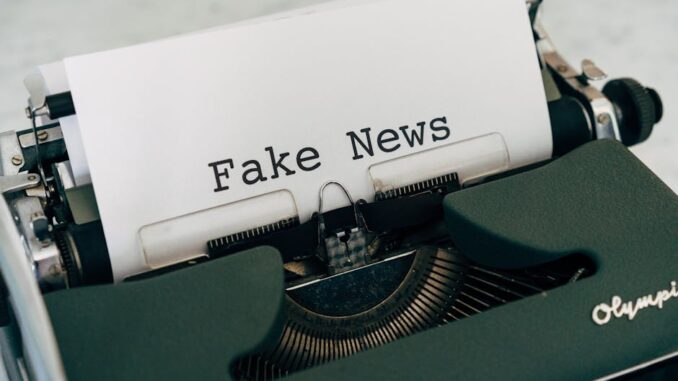
Abstract
Misinformation has emerged as a formidable challenge in the digital age, profoundly affecting public health, democratic processes, and the collective understanding of reality. This report examines the multifaceted nature of misinformation, its manifestations through advanced technologies like artificial intelligence (AI), and the mechanisms by which it spreads. It also explores the societal impacts of misinformation, including its effects on trust, polarization, and the erosion of democratic institutions. Finally, the report evaluates current strategies and proposes comprehensive approaches to mitigate the adverse effects of misinformation.
Many thanks to our sponsor Panxora who helped us prepare this research report.
1. Introduction
The digital era has revolutionized information dissemination, enabling rapid and widespread sharing of content. While this has democratized access to information, it has also facilitated the proliferation of misinformation—false or inaccurate information spread without malicious intent. The ease with which misinformation can be disseminated online poses significant challenges to public health, democratic processes, and the collective understanding of reality. This report delves into the nature of misinformation, its modern manifestations, and the societal implications of its spread.
Many thanks to our sponsor Panxora who helped us prepare this research report.
2. The Nature of Misinformation
Misinformation encompasses a broad spectrum of false or inaccurate information, including disinformation (deliberately false information spread with the intent to deceive) and malinformation (genuine information shared with the intent to harm). The digital landscape has given rise to sophisticated forms of misinformation, such as AI-generated narratives and deepfakes, which are increasingly difficult to detect and counteract.
Many thanks to our sponsor Panxora who helped us prepare this research report.
3. Mechanisms of Spread
Misinformation spreads through various channels, including social media platforms, news outlets, and interpersonal communication. The architecture of social media platforms, characterized by algorithms that prioritize engagement, often amplifies sensational or emotionally charged content, facilitating the rapid dissemination of misinformation. Additionally, the formation of echo chambers—environments where individuals are exposed primarily to information that reinforces their existing beliefs—exacerbates the spread and entrenchment of misinformation.
Many thanks to our sponsor Panxora who helped us prepare this research report.
4. Societal Impacts
The proliferation of misinformation has profound implications for society. In the realm of public health, misinformation can lead to vaccine hesitancy, undermining efforts to achieve herd immunity and control infectious diseases. During the COVID-19 pandemic, for instance, misinformation about the virus’s origins and prevention measures contributed to public confusion and non-compliance with health guidelines. In democratic societies, misinformation can erode trust in institutions, polarize public opinion, and influence electoral outcomes, thereby undermining the integrity of democratic processes. The erosion of trust in information sources also diminishes the quality of public discourse and decision-making.
Many thanks to our sponsor Panxora who helped us prepare this research report.
5. Technological Manifestations
Advancements in AI have introduced new challenges in the form of deepfakes—AI-generated media that manipulate visual and audio content to create convincing but false representations. Deepfakes have been used to create misleading political videos, spread false information about public figures, and generate hoaxes. The sophistication of deepfakes makes it increasingly difficult for individuals to discern authentic content from fabricated material, posing significant risks to information integrity and public trust.
Many thanks to our sponsor Panxora who helped us prepare this research report.
6. Strategies to Combat Misinformation
Addressing the challenges posed by misinformation requires a multifaceted approach. Media literacy education is crucial in equipping individuals with the skills to critically evaluate information sources and recognize false or misleading content. Regulatory measures, such as policies that promote transparency in online advertising and hold platforms accountable for the spread of misinformation, are also essential. Technological solutions, including the development of AI tools to detect deepfakes and other forms of misinformation, can aid in identifying and mitigating false content. Collaboration among governments, technology companies, and civil society is vital to develop and implement effective strategies to combat misinformation.
Many thanks to our sponsor Panxora who helped us prepare this research report.
7. Conclusion
Misinformation represents a significant threat to public health, democratic processes, and the collective understanding of reality. Its spread is facilitated by technological advancements and the dynamics of digital communication platforms. To mitigate the adverse effects of misinformation, a comprehensive approach involving education, regulation, technological innovation, and collaborative efforts is imperative. By addressing the root causes and manifestations of misinformation, society can work towards preserving the integrity of information and fostering informed decision-making.
Many thanks to our sponsor Panxora who helped us prepare this research report.
References
-
World Health Organization. (2024). Disinformation and public health. Retrieved from https://www.who.int/news-room/questions-and-answers/item/disinformation-and-public-health
-
Wikipedia. (2025). Deepfake. Retrieved from https://en.wikipedia.org/wiki/Deepfake
-
Wikipedia. (2025). Echo chamber (media). Retrieved from https://en.wikipedia.org/wiki/Echo_chamber_%28media%29
-
Wikipedia. (2025). Fake news. Retrieved from https://en.wikipedia.org/wiki/Fake_news
-
Shoaib, M. R., Wang, Z., Ahvanooey, M. T., & Zhao, J. (2023). Deepfakes, Misinformation, and Disinformation in the Era of Frontier AI, Generative AI, and Large AI Models. arXiv preprint arXiv:2311.17394. Retrieved from https://arxiv.org/abs/2311.17394
-
Wikipedia. (2025). Misinformation. Retrieved from https://en.wikipedia.org/wiki/Misinformation
-
Wikipedia. (2025). Disinformation attack. Retrieved from https://en.wikipedia.org/wiki/Disinformation_attack
-
National Academies of Sciences, Engineering, and Medicine. (2024). Understanding and Addressing Misinformation About Science. The National Academies Press. Retrieved from https://nap.nationalacademies.org/resource/27894/interactive/
-
Wikipedia. (2025). Generative artificial intelligence. Retrieved from https://en.wikipedia.org/wiki/Generative_artificial_intelligence
-
World Health Organization. (2022). Infodemics and misinformation negatively affect people’s health behaviours, new WHO review finds. Retrieved from https://www.who.int/europe/news/item/01-09-2022-infodemics-and-misinformation-negatively-affect-people-s-health-behaviours–new-who-review-finds
-
University of Nebraska Medical Center. (2024). Disinformation Is the Real Threat to Democracy and Public Health. Retrieved from https://www.unmc.edu/healthsecurity/transmission/2024/01/30/disinformation-is-the-real-threat-to-democracy-and-public-health/
-
Writing Commons. (2024). Analysis and Sophistry – Research Deepfakes & Misinformation. Retrieved from https://writingcommons.org/projects/writing-with-ai/research-deep-fakes-misinformation/
-
Web Stat. (2024). Misinformation and Its Effects on Public Health Responses. Retrieved from https://webstat.net/guides/misinformation-and-its-effects-on-public-health-responses/
-
Res Publica. (2024). Publicity’s Misinformation Problem. Retrieved from https://link.springer.com/article/10.1007/s11158-024-09661-3


Be the first to comment